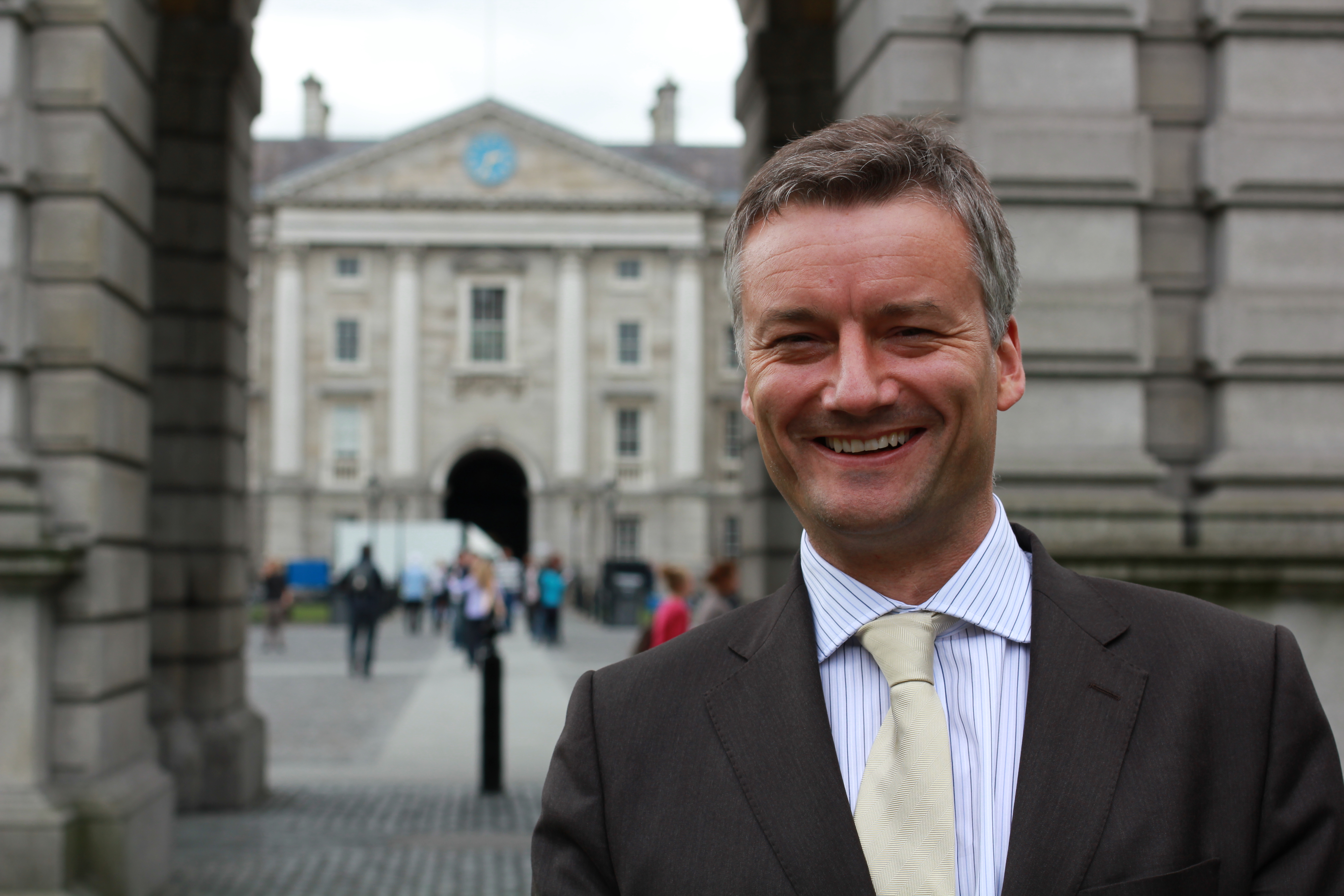The provost of Trinity, Patrick Prendergast, spoke to Trinity College Dublin Students’ Union (TCDSU) Council this evening. Introducing him, TCDSU President Kieran McNulty thanked the provost for “various initiatives”, such as the proposed Student Centre, and noted that it was an uncertain time for the college, not least due to the ongoing funding crisis.
Prendergast, told students that “we’re all coming from the same place” as regarding the funding crisis in higher education, and advocated for efforts to secure a new funding model. The Provost fielded a number of questions from students unhappy with the prospect of an income-contingent loan scheme, offering a qualified defence of such a scheme. “They’re not the same in every country”, he said, adding that any prospective scheme should suit the needs of Irish students, as opposed to importing a scheme directly from abroad.
The Provost was questioned repeatedly by students on the issue of loans and fees. Conor Reddy, Science Convener of TCDSU and Secretary of Students Against Fees, said that “working class people are a minority in this college”, and castigated the Provost for his stated support for an income-contingent loan scheme as a solution to the funding.
Prendergast referred to the Trinity Education Project, alongside what he called the “Groundhog Day issue” of the ongoing third-level funding crisis. “We must all play our part in advocating for more funding for higher education”, he said, pointing in the disparity in staff/student ratio between Trinity and universities in the UK and elsewhere. “By and large we need to get back to the situation before austerity, where governments in Ireland and around the world put money into higher education”, he said.
He told students present that “contact like this between us are essential for the success of this university”. Prendergast outlined developments in the Trinity Education Project, which will be completed in the next year.
The Provost was questioned twice on the issue of mental health funding, with one student posing the issue of only having one psychiatrist on campus. He was asked to divest money to hire another psychiatrist, and responded by saying that “we’ve only a fixed envelope of money”, and that “the state does not pay us to deliver the services you want.”
Prendergast gave a defence of labour relations with non-academic staff members, calling claims regarding the pay of senior staff members and the treatment of workers in general “unsubstantiated”. There were questions from Seán Egan of Students Against Fees and Cathal Kavanagh of Trinity News on the issue, which emerged last week after a meeting by the Unite and SIPTU trade unions in early January.
He spoke about claims of precarious employment and the increase in contract, as opposed to permanent work, in Trinity saying that “all staff that come into Trinity College now are on contracts” and that “all employees academic, non-academic and admin staff… are treated well”. He added that Trinity aims to be “as good an employer as its resources allows it to be”.
Prendergast also told Council that planning permission has come through for the 300 new accommodation spaces in the Oisín House building.
Additional reporting by Jane Purdom and Stacy Wrenn.







